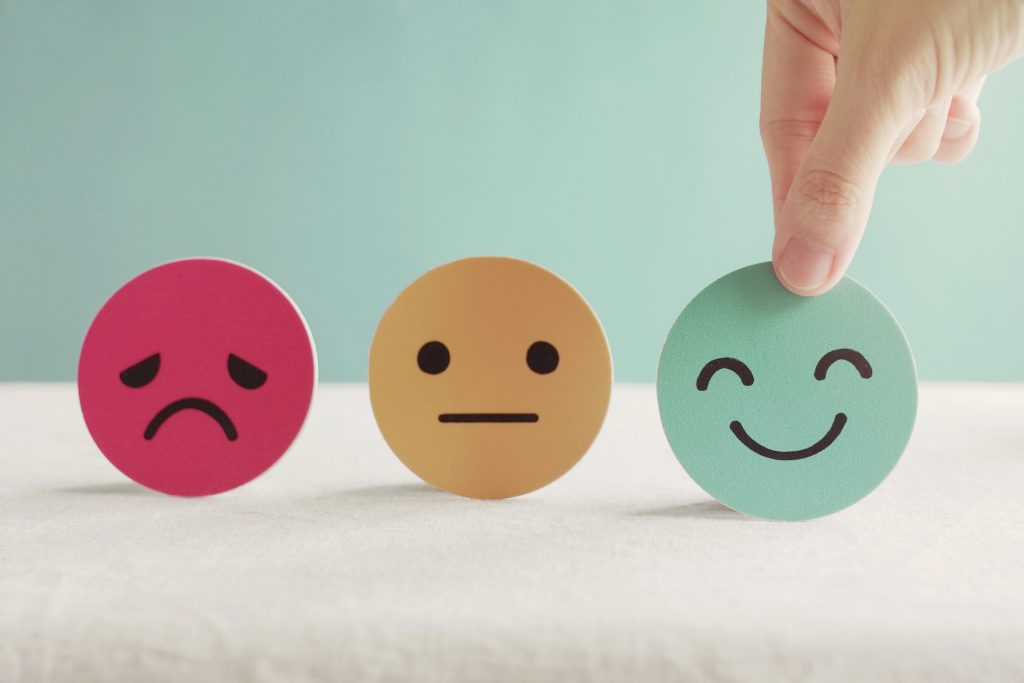“It was the best of times, it was the worst of times” – Charles Dickens
University, college, higher education, or whatever you want to call it, can be an extremely stressful time. However, it can also be the best time of your life. It’s the first time many kids are finally free from parental or school limitations. It’s the first time many kids experience alcohol, drugs and many other activities. On the other hand, it’s also a time filled with deadlines, mental health issues and heartbreak. Essentially, it’s a complete and utter mind field that no one can really prepare you for.
That’s why I wanted to tell you a true story. A story of a friend of mine, let’s call him John. John had an up and down experience at university and it was ketamine that, he says, was a big part of that. Ketamine – or horse tranquiliser – has been known to be the university drug of choice in the UK, and today you’re going to find out why…courtesy of John.
Make sure to sign up for The Psychedelics Weekly Newsletter to stay informed on everything important going on today, as well as to get access to exclusive deals on flowers, vapes, edibles, and much more! We’ve also got great offers on cannabinoids like HHC-O, Delta 8, Delta 9 THC, Delta-10 THC, THCO, THCV, THCP & HHC , which you can find by going to our “Best-of” lists!
Ketamine
Ketamine has a variety of different names, just like all recreationally used substances. These include: ket, wonk, K, donkey dust, Klein and many more. Whatever you want to call it, this drug was originally used – and still is – as an anaesthetic for doctors and veterinarians. This is often why people refer to this drug as a ‘horse tranquiliser’, because it literally is. Although, if you ever hear a drug dealer refer to their ketamine as ‘rhino ketamine’, then that’s probably just a marketing tool rather than hard cold facts. Ketamine is known by doctors to be the most successful substance to anaesthetise larger animals, this is why it’s often used on horses. Mind Bloom writes:
“In large animals, such as horses, gas-based anesthetics like nitrous oxide require several parts to administer. Dosage and administration are important safety considerations when dealing with an animal weighing several hundred pounds. This is why ketamine, which can be safely administered in one injection, is often used in veterinary clinics.”
Whilst this might seem alarming, ketamine is used as a party drug frequently. Whilst enough of it could take down a horse, when handled responsibly, it is used to give a buzz of anti-anxiety, joy and positive dissociation. However, of course, too much can cause the dreaded ‘K-hole’. We’ll get on to that later.
History
In 1956, a drug known as phencyclidine was used as an anaesthetic on monkeys. In consequence, they tried using it on human beings. However, people began to experience odd side effects. With this substance, patients would wake up without sensations in their limbs. After a bit of messing around with the formula, Dr. Calvin Lee Stevens formulated the drug that we now call ketamine. This substance was used in the Vietnam war to give to injured soldiers, as well as for those suffering from schizophrenia and depression. However, the use of this drug as a recreational substance caused it to be made illegal in the majority of countries.
Now
Ketamine is currently going through a medical renaissance. Many professionals are finally beginning to acknowledge it as a useful medicine in the mental health industry. In the UK, ketamine is still illegal and a Class B drug – alongside cannabis and amphetamines. However, esketamine was recently made legal to be used medically. This drug is a ketamine-like drug that is used to treat severe depression. The Guardian writes:
“Esketamine, taken as a nasal spray, is one of the first rapid-acting drugs for depression and the first in decades that is thought to work in a fundamentally different way in the brain.”
This drug, which is very similar to ketamine, has been championed for its instant anti-depressant effects. Most drugs take weeks or even months to help people’s mood, whereas this drug has been shown to have enduring effects within hours. Unfortunately, when John was at university, this drug was not legal.
John & Ketamine
Let’s get back to John, and the story of his experience with ketamine at university. Just to be clear – university is a higher education course that occurs in the UK just after secondary school. So around the ages of 18-22.

When John first arrived at university he had tried some drugs before – the likes of MDMA, ecstasy and cannabis – but ketamine was a substance he didn’t really know much about. It’s often that young adults instantly jump at the idea of taking ecstasy as a first substance because of the instant euphoria, connection with other young people and the youthful non-existent comedowns. However, as you get older, the horrific comedowns of ecstasy or even cocaine seem to make the drug less appealing. Ketamine is different. Ketamine doesn’t seem to burden the user with the same level of next day existential dread.
John’s First Experience
John’s first experience of ketamine came in his first year at a friend’s house party. Levels by Avicii was playing and he was probably wearing some terrible ‘Johnny Cash’ T-shirt. Not that there’s anything wrong with Johnny Cash, just that he probably had never even listened to even one of his songs. Not even ‘hurt’. A friend of John’s came over to him and said there was a girl in the corner offering bumps of MDMA, and that if he went quick there may be still some left. John, feeling pretty anxious due to the fact he knew no one at the party, ran over and found this girl. She reluctantly gave him a bump. He asked why she wasn’t bombing it, which was a more usual way of taking MDMA. In response, the girl stared at him and replied: ‘that was ket, not MDMA, idiot’.
About half an hour later, John began to feel wobbly. Like everything was slowing down. It wasn’t an unpleasant feeling, it was just interesting. This feeling of warmth and calmness then bathed over him. He began walking around the party, speaking to everyone he could see. It was the first time he felt not even an inch of anxiety. It wasn’t the same sense of overpowering euphoria that ecstasy offers, but it was instead an easiness. A simple feeling of acceptance to everything and everyone. John loved it.
John’s K-Hole
As John began his second year, he was going out a lot more. He was listening to more experimental music and enjoying attending events with music that matched the drugs he liked taking. For instance, funk and soul music events he found to go well with MDMA. And, for ketamine, he enjoyed going to jungle-music nights. However, on this specific night, John made the error of forgetting how much ketamine he’d taken. With a lot of alcohol consumed, John began taking too frequent visits to the toilet for a key of ketamine. Usually it takes around 30-40 minutes for a bump of ket to be fully experienced. However, if you take too much too quickly, it can cause the dreaded k-hole. This was what John experienced. Very Well Mind writes:
“One way to think about a k-hole is a state between intoxication and a coma. As the consciousness of the real world diminishes, alterations in your senses may lead to illusions and hallucinations. While temporary, some users may show ongoing dissociative and psychotic symptoms.”
John remembers time standing still. At one point, he often thought that he may be dead. That perhaps this was what death felt like. Whilst it may have only lasted 10-15 minutes, this K-hole felt like it lasted days. Whilst it may be hard to understand why anyone would take a drug that could so easily lead to a horrific experience like this, John felt if he was able to harness the powers of ketamine, he’d be able to live a happier life. In a sense, this k-hole was the wake up call he needed. He wouldn’t exploit ketamine again.
John’s Studying & Mental Health
John began using small amounts of ketamine to microdose during his studying. He found that if he took the perfect amount, at the right time, he’d be able to study for longer without losing focus. He also found he became more interested in the topic he was looking at. He knew that if he took too much, he would end up being too inactive to work, so he understood it was a bit of a balancing act.

John also was dealing with social anxiety and mild depression at university. According to Mind, 1 in 5 UK students are diagnosed with a mental health problem whilst at university. He found that ketamine was the perfect drug to use to quell these feelings of anxiety and depression. Just as esketamine is being used now, the drug would chill him out, and allow him to speak to people with ease, as well as diminishing negative and intrusive thought patterns. John was using ketamine to help him through the struggles, surprises and downsides of university. However, he was beginning to realise he was becoming dependent on ketamine.
The End
As John neared the end of university he realised how he often would need ketamine in order to go to a social event or get through a stressful situation. Due to this, he decided to go cold turkey during a ‘dry January’. This is where people decide to not take any substances during the first month of the year. Whilst it was difficult, and slightly miserable, this month allowed John to force himself through situations that would usually require ketamine. Now, John still uses ketamine, but does not rely on it. However, he has spoken to his doctor about the potential use of esketamine. Perhaps if it had been available whilst John was at university, he would have been able to have a healthier relationship with the substance.
Welcome to the site! Thanks for stopping by CBDtesters.co, the preeminent internet location for all cannabis and psychedelics-related news that’s important today. Read thru the site regularly to stay knowledgeable on the quickly-moving landscape of legal drugs and industrial hemp, and remember to sign up for The Psychedelics Weekly Newsletter, so you’re never behind on what’s going on.
Disclaimer: Hi, I’m a researcher and writer. I’m not a doctor, lawyer, or businessperson. All information in my articles is sourced and referenced, and all opinions stated are mine. I am not giving anyone advice, and though I am more than happy to discuss topics, should someone have a further question or concern, they should seek guidance from a relevant professional.









